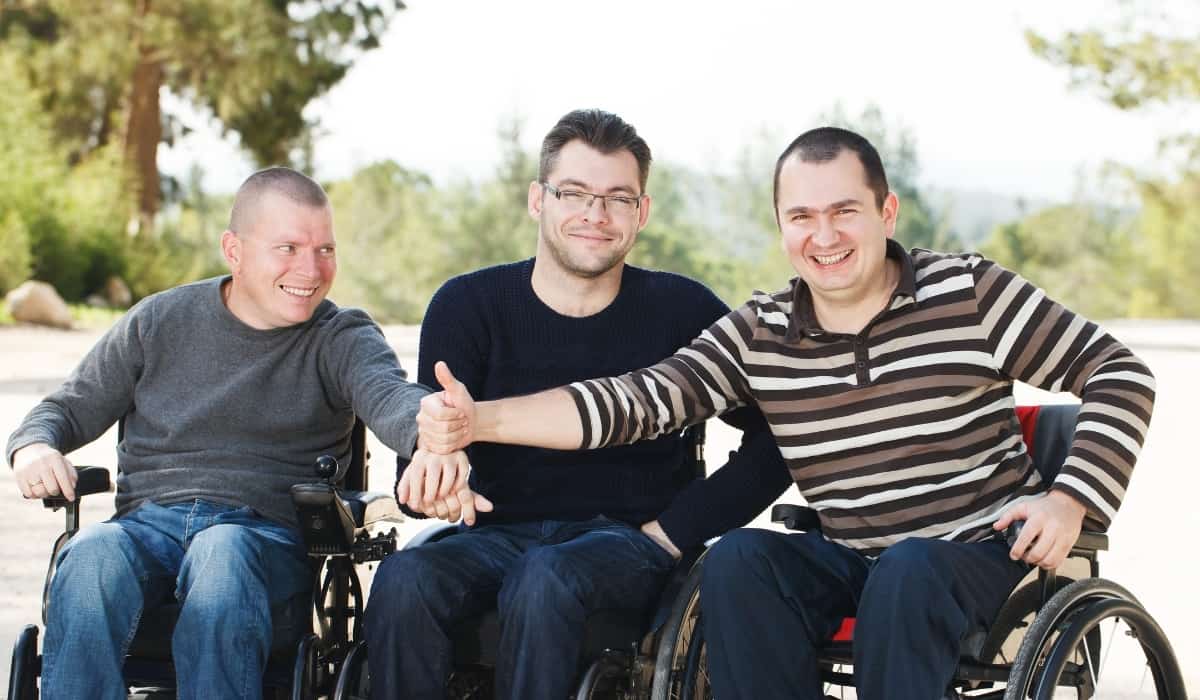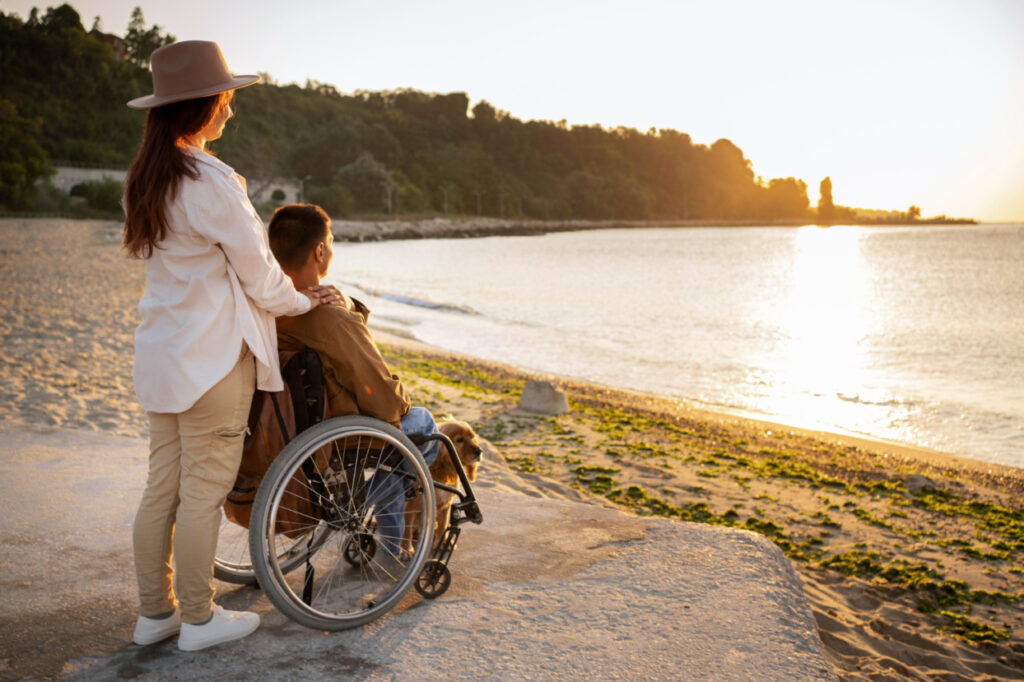NDIS has become a massive game-changer when it comes to housing for disabled people. They provide more options, more support and the ability to live more independently. As there is a high demand for this funding only a small percentage of NDIS participants will receive NDIS funding for accommodation (called specialist disability accommodation). These people are most severely disabled and in high need of these Disability housing.
For the majority of cases, the NDIS does not cover the funding for rent or any type of day-to-day costs including the telephone, internet, or groceries. NDIS funds on a much more day-to-day basis support that would enable independent living among disabled people.
Participants would be able to access life skills building like cooking, budgeting, and learning to catch public transport. They could request home modifications or could access the help of a support worker to assist them with showering, shopping, or preparing meals in the home environment. This would provide them with having more confidence and to be able to live more independently with time.
People who have a disability are finally able to realise that they could possibly be able to move out of the family home or a group home. They could not be into mainstream housing with people they choose and in an area they want Sometimes, preparing for such a huge move can be a process that could take a number of years. It is important that you talk to your planner about all your long-term goals and how and where you would like to live in future and with whom. This could be implemented into your plan, where you can have a specific goal to work towards having an increased independent living.
There are a number of different types of housing options that are available for you and you could work out what’s right for you. You could also request coordination of support when you make your plan to fund a support coordinator to help you look at the various housing options available to you.
A support item ‘Assistance with Accommodation and Tenancy Obligations’ that provide you with assistance to obtain and/or retain appropriate accommodation. This can include assisting you while applying for a rental tenancy or undertake tenancy obligations. You will need to ask for this in your planning application.
Specialist Disability Accommodation (SDA)
Australians that are living with a disability would often require access to Specialist Disability Accommodation (SDA) which is housing that is designed for those who require very high support needs and/or extreme functional impairment. The National Disability Insurance Agency makes the choice about who is eligible for SDA. The eligible participants would be required to gain access to SDA and would be funded and what would cover any disability-related housing costs that are above the normal costs of housing. Tenants would still have to pay a ‘reasonable rent contribution’.
SDA funding wouldn’t cover the support costs, which are assessed and funded separately by the NDIS. These costs are called the Supported Independent Living (SIL) costs. Usually, SDA is shared with others, either in an exceedingly unit or a house. There would move away from larger style residential facilities to smaller three or five-bedroom shared homes, with growth expected to take place in the duplex/townhouse housing type (1-3 bedrooms) in the near future.
Other Housing Options –
The following options are available that is not included in the SDA
- Private renting – Private renting would give you a wider choice over who you would want to live with and where you live. Private rentals that are older would not be as accessible as you would want, so think about what you need now but also what you may need in 12 months’ time or further afield.
- House sharing – People who are looking for disability housing for rent have found out that sharing a house with one or two others can significantly reduce the amount of rent that they would pay and that they would be able to share support.
- Public and community housing – Public housing is delivered through state governments, and there are usually long waiting lists. Not all participants are eligible for housing projects, it heavily depends on your income and what you own. Your regime housing department can consult with you about what the eligibility requirements are, and the way to use for housing. Community/social housing is analogous to housing development but is typically managed by a not-for-profit organisation that owns the property.
- Family home or your own residence – many of us with a disability opt to stay within the family home or their house with their nearest and dearest, and families often prefer that option too. While funding isn’t available under the NDIS for this feature – in other words, to travel to oldsters towards ‘board’ – there’s still lots of support available. There’s a raft of options available now through the NDIS like in-home support, community access, or respite to enrich ‘informal support’ (often family support) for things like showering, home maintenance, transportation, life skills or cooking, making staying reception a more viable option for people who prefer it. Home modifications could also be funded if NDIS participants are required to stay in your own home.
- SIL – Supported independent living is the funding provided for supervising everyday tasks during a shared living environment, which can be either temporary or on an ongoing basis. People with a disability who board a personal rental setting, own their house and stomach others, or those that board Specialist Disability Accommodation are also eligible. The funding for this stuff varies within the NDIS price guide and is dependent upon the extent of support required because of the number of individuals living within the shared setting. There are three levels available – –
- Lower needs – providing supervision in the living arrangements and this may not be 24/7.
- Standard need – providing 24/7 support which would include assisting and/or supervising most of the daily tasks and/or overnight sleepovers.
- Complex needs – this would include providing highly frequent assistance to the individual with managing challenging behaviors that would require intensive positive behavior support, continual active assistance with all the daily tasks as well active management of complex medical needs with active support 24/7 provided during the night.










